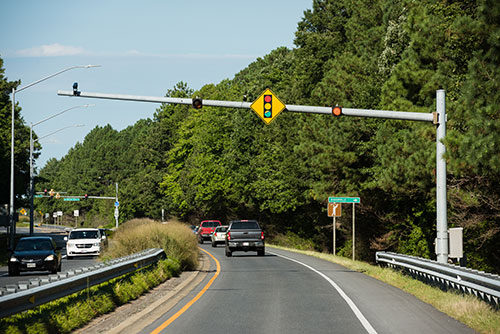There’s a reason local news stories these days often cover the acquisition of license plate recognition cameras—like this one out of Manatee County, Florida or this one in Laurie, Missouri—and that’s because this specific purchase is an absolute game-changer for anyone living and working in that area.
Since their introduction in the mid 1970s, the ever-advancing technology has proven itself time and again to be critical for law enforcement agencies, going from a nice-to-have luxury to a can’t-operate-without system. If you’re reading this, you’re no doubt familiar with many of the benefits that come from automatic license plate recognition systems. You might also be well aware of the costs of buying one. Today, though, think about why your law enforcement agency can’t afford to not have one.
Here are just three of those reasons your agency should not go any longer without an ALPR system.
1. It’s critical to be as effective and efficient as possible.
Our world is becoming increasingly dangerous and unpredictable. Traffic is getting heavier. Data continues to grow exponentially. But at the same time, budget cuts are becoming a widespread occurrence, and agencies everywhere are having to face this onslaught of challenges with limited resources and manpower. That’s why it’s so important that your agency invests in technology that can assist your officers in their work, minimize guesswork and safety risks, and empower them to be more effective and efficient with the resources available. That’s exactly what ALPR cameras do.
Leonardo’s ELSAG ALPR cameras can capture up to 900 plates per minute, enabling your officers to identify criminals as the camera matches plates against hot and white lists. They add another pair of eyes to your staff—superhuman eyes, at that—and help your team do their work as efficiently as possible. While ALPR systems certainly won’t fix police officer fatigue, it’s a giant step in productivity and in showing your agency that their health and safety is taken seriously.
2. Your community counts on you.
Now more than ever, people want their communities safe. They’re speaking out at rallies and protests, raising funds for causes they believe in, and relying on their law enforcement agency to do whatever it takes to protect their families no matter where they spend their days—at work, at home, at school, and beyond. Our ELSAG ALPR system is hands-down one of those solutions that everyone can get behind.
Imagine being able to tell your citizens that your agency has invested in equipment that will make their community safer by detering, preventing and resolving drug-related activity, monitor traffic going in and out of your school zones, search for missing persons, and crack down on vehicle-related crimes. During a time when people are so frustrated with the processes and procedures it takes for change to happen, this could be a huge win for the people in your neighborhoods and your team.
3. You risk costs associated with time-consuming searches and vehicle-related crimes.
Around 33,000 gangs are criminally active in the United States. Tens of thousands of kids go missing every year. You deal with Silver Alerts, terrorist threats, drug traffickers, and sexual offenders. There are virtually countless people to search for—and you know more than anyone that it takes an incredible amount of manpower and resources to locate an individual. On top of that, with every second spent searching, the unspeakable could happen. A proven tool for homeland security measures and an investigative aid for AMBER and Silver Alerts, our ELSAG ALPR systems help officers react quickly, find who they need to find, and prevent further crimes.
As for vehicle-related crimes, consider this fact: The FBI estimated that $14.3 billion was lost in 2015 due to property crimes—the most expensive being motor vehicle theft at about $7,000 per crime on average. Among its many vehicle-related benefits, our ALPR system hunts for license plates belonging to suspended or revoked drivers and stolen vehicles, without officer assistance.
Want to learn more?
Let’s set up a time to talk—no strings, no commitments. We’d love to answer any questions you have.

